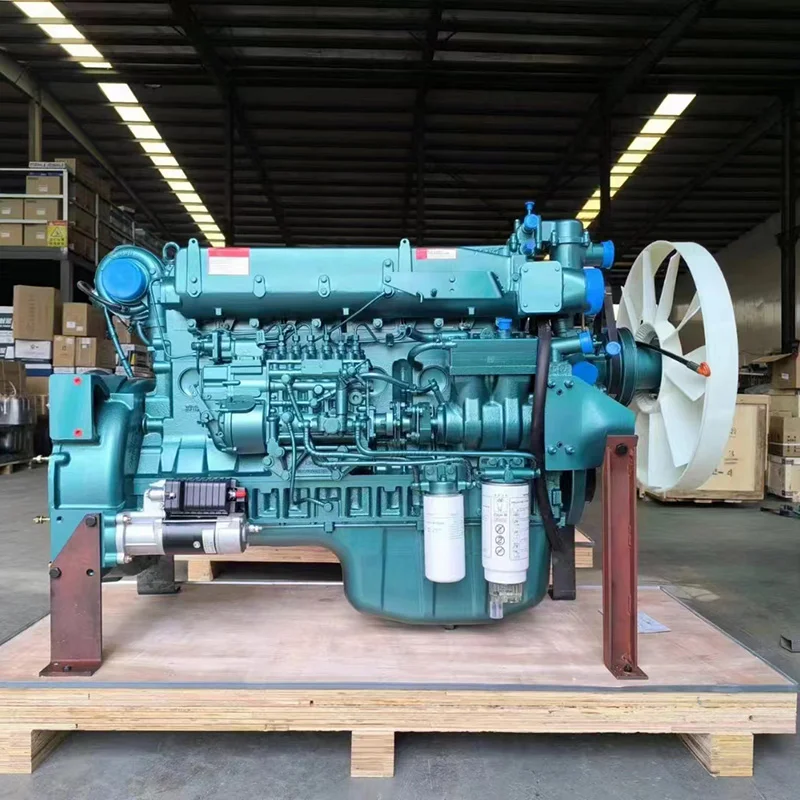Truck engine maintenance is an important link to ensure the long-term stable operation of the vehicle and extend the service life. Here’s a detailed look at truck engine maintenance, including key maintenance points, precautions and recommended cycles:
Routine maintenance
1.1 Engine start and warm up
Preheating before start: When the engine is cold started, the engine coolant should be preheated first to reach the normal working temperature, and then gradually increase the speed. This helps to reduce the wear of the internal parts of the engine and ensure normal fit clearance.
1.2 Check tightening position
Regular inspection: including cylinder head, intake and exhaust manifold and muffler connection tightness, as well as engine fastening bolts, nuts and flywheel housing bolts. Ensure that there is no loosening caused by factors such as shock and uneven load.
1.3 Clean the sediment and replace the filter
Cleaning: Regularly clean carburetor, diesel pump, diesel filter, air filter and other components to remove impurities such as oil sediments, machine parts and pipeline oxides.
Replace the filter: The oil filter should be replaced each time the oil is maintained to ensure that the pollutants in the oil are effectively filtered.
1.4 Check for dirt and leaks
Air compressor and pipeline: check the fixed condition of the air compressor and whether the pipeline has oil leakage and air leakage, and timely remove the oil and water and dirt in the air storage tank.
Cooling system: Ensure that the cooling water is pure, avoid scale blockage affecting heat dissipation, and check the water pipe for leakage.

Special maintenance
2.1 Water tank and coolant
Choose high-quality coolant: Avoid using ordinary water as a coolant, and choose high-quality coolant with anti-rust, anti-electrolysis and anti-scale functions.
Regular replacement: According to the use of the vehicle, replace the antifreeze every two to three years to ensure the normal operation of the cooling system.
2.2 Fuel system
Replace the fuel filter regularly: Replace the fuel filter according to the maintenance requirements, remove the sediment in the fuel filter, and keep the fuel system clean.
Fuel tank and pipeline maintenance: Properly maintain the fuel tank and pipeline to ensure a stable and reliable fuel supply.
2.3 Crankcase sludge treatment
Regular cleaning: Sludge will be generated during engine operation. It is necessary to clean the crankcase and related components regularly to avoid sludge accumulation affecting engine performance.
Maintenance cycle and precautions
3.1 Maintenance cycle
Oil: Change the oil and oil filter regularly according to the use of the vehicle and the manufacturer’s recommendations.
Filter: The air filter should be replaced after 3 times of cleaning, and the diesel filter and oil filter should be replaced according to the maintenance cycle.
Gear oil: Heavy truck gear oil replacement cycle is one year or 100,000 km.
3.2 Matters needing attention
Use regular accessories: When replacing filters, oil and other accessories, you should choose accessories produced by regular manufacturers to ensure quality and performance.
Follow manufacturer’s recommendations: When performing engine maintenance, follow the vehicle instructions and manufacturer’s recommended maintenance cycles and steps.
Professional maintenance: For complex or uncertain maintenance projects, you should seek the help and guidance of professional maintenance personnel.
Through the above comprehensive maintenance measures and precautions, you can ensure that the truck engine is always in a good technical state, providing a strong guarantee for the safe and stable operation of the vehicle.

